One hundred years ago, on June 17, 1922, the Portuguese took to the streets and, in apotheosis, celebrated the air journey carried out by Gago Coutinho and Sacadura Cabral, between Lisbon and Rio de Janeiro.
The event took the country to ecstasy, depressed as it was by so many vicissitudes, arising from the participation and consequences of the First World War (1914 - 1918), the aftermath of the terrible Pneumonic Flu (1918), not to mention the political upheaval (well evident in the night when, on October 19, 1921, the prime minister, charismatic figures of the Republic, such as Machado Santos and Carlos da Maia, among others, were assassinated).
If the arrival of the distinguished aviators to the Penedos de São Pedro and São Paulo, already in Brazilian territory, on April 18, 1922, had galvanized the country, it went into an almost commemorative hysteria with the conclusion of the adventure, two months later.
O RAID air from Lisbon to Rio de Janeiro was like an oxygen balloon in the patriotic pride and in the morale of the nation, as the period press tells us, from the beginning of the trip, on March 30th, and its end, on March 17th. June.
It is true that this lasted for 78 days, there were so many setbacks, in a total of 62 hours and 26 minutes of flight, at an average speed of about 130 km/h.
For its implementation, three Fairey seaplanes were used: «Lusitânia», between Lisbon and the Penedos de São Pedro and São Paulo; the «Pátria», between the island of Fernando de Noronha and those Penedos, where the aviators almost lost their lives; and finally the «Santa Cruz», with which they completed the journey, in Rio de Janeiro.
The conclusion was the happy result of the inventions of those aviators, such as the sextant with artificial horizon and the course corrector, which constituted the principle of scientific aerial navigation.
As for the protagonists, Carlos Viegas Gago Coutinho, born in Belém (Lisbon), where he was born on February 17, 1869, of Algarve descent, was a naval officer and geographer, while Artur de Sacadura Freire Cabral, born in Celorico da Beira, May 23, 1881, he was captain-lieutenant and had integrated, among others, geodesic and geographic missions.
Longtime friends, aviation lovers and above all adventurers, had rehearsed the expedition on a flight from Lisbon to Madeira, in 1921.
It should be noted that the birthplace of Gago Coutinho raised doubts even in June 1922, so that the Faro newspaper «Correio do Sul», in its July 9 edition, published an interview with his father, José Viegas Gago Coutinho, then aged 93, in which, to the question: «- Where was your son born after all?», that one was peremptory: «– In a building on Calçada da Ajuda, in Belém. I know the building and even now they want a tombstone there».
However, the question was repeated: «-Are you then absolutely sure: Gago Coutinho was born in Belém?», the answer: «-absolute certainty. Unless, of course, my son remembers his birth better than I do...».
It is true that José Gago Coutinho, although born on the site of Vale, in São Brás de Alportel, was baptized in the Cathedral, in Faro, as he himself clarified in the June 18 edition of the same journal. However, this did not happen with his son, so it is unfounded that the intrepid aviator was born in the Algarve.
As mentioned, the press gave ample attention to the trip, although national periodicals such as «O Século», in the impossibility of publishing the news sent by correspondents from all localities, limited themselves to disseminating only the toponym and not the description. of the festivities.
The «Diário de Notícias» inserted descriptive content only in the first days, as in the June 20 edition, some of which came from the Algarve.
So in Faro, «at 5 am the news of the arrival of the aviators in Rio de Janeiro was known. At once the mortars and rockets began to explode, the bells of all the churches tolled and the factories to whistle. There is great enthusiasm”.
The news reached the whole region via telegraph and the correspondent of Faro took the opportunity to praise «the postal and telegraph staff for their patriotic interest in sharing the news of the 'raid'».
The local weekly «Correio do Sul», in its June 25 edition, notes that «the city experienced one of the most beautiful and effusive moments not only in recent times, but perhaps in its entire life».
In fact, to the three mortars launched by postal workers, 101 more were added by the central party commission, the peal of bells, the hiss of factories and the salvos of warships, not to mention the “double step” of the infantry marching band on the streets of Faro and of course "the acclamations of the people".
At night, the whole city converged on the Manuel Bívar Garden, profusely decorated and lit up with blind balloons, where the 4th infantry band played, occasionally popping fireworks. Many buildings, public and private, were lit. From the dock, and according to the «Algarve», «showy rockets were launched».
The festivities continued on the following day, with an open-air mass in Campo de S. Francisco, where canon Bentes gave an “erudite and enthusiastic address to the achievements of Gago Coutinho”.
In the afternoon, formal sessions took place, among others, at the Liceu João de Deus and the Escola Comercial Tomás Cabreira.
A bodo was distributed to 50 poor people, “consisting of a ration of bread, rice and money”.
Similar was what happened in Olhão. The news of the last raid arrived there at 13:00 pm, and from then on, the launch of the mortars by the telegraph station was anxiously awaited, announcing the conclusion of the trip.
Around 17:00, those went on the air and “soon a crazy joy seized everyone; the bells tolled festively, the whistles of the factories and steamers blared with impetuosity”, in short: “it was a moment of enthusiasm and joy”, reads the “Gazeta de Olhão”, of 25 June.
The village was decorated and several buildings were illuminated. The following morning, at dawn by the Loulé Philharmonic, a feast to 500 poor people, brightened by the same band.
At 16:00, procession where students from schools, local authorities, as well as most of the communities of Olhão, with their banners, joined.
At the end of the procession, through streets decorated with bedspreads and flags, a rally took place, starting from the Parish Council building, in whose windows the flags of Portugal and Brazil were intertwined.
Although the «Doctors of Olhão» were invited to speak, they did not attend, giving rise to a caustic criticism of that newspaper.
At night, a musical concert took place on Avenida da República, decorated with flags and lit up with 800 colored bowls, as well as with Venetian balloons, which gave it a «fairy aspect», several buildings were also illuminated and decorated.
For the «Gazeta de Olhão», as a sign of «rejoicing at the conclusion of such a brilliant and daring feat», the town «dressed a general gala on this day, rarely seen and so sincere, so full of enthusiasm».
In turn, nearby, in São Brás de Alportel, and now following the «Correio do Sul», the news was known, rockets and mortars fired, the bells tolled, and the local philharmonic ran through the village streets, «followed by a lot of people who deliriously acclaimed the two aviators, the Fatherland and the Republic» .
At night, many tar barrels were burned, several buildings were illuminated, especially the CTT one, there were also wildfires. On the 18th, a solemn session was held in the Chamber, in which Dr. Vitorino Passos Pinto, as well as patriotic poetry.
The room was brightly decorated, with relief for «the busts of the Republic and the two glorious aviators, a work in clay modeled by the delicate artist D. Rosalina Passos».
After the meeting, whose minutes were signed by all the audience, a civic procession took place, which to the sound of the national anthem walked the streets of the village, in which the entire local society was incorporated.
The following day, according to Diário de Notícias, councilor Lopes Rosa received at Fonte do Bispo, from the hands of the father of the «wise aviator», a portrait of Gago Coutinho «for the Alportel City Council».
On the other hand, António Martins Sancho offered a dinner to the poor of the local Casa da Caridade that night.
Em Loulé, the celebrations did not diverge. When the news became known at 16:40, rockets and mortars took to the air, festively tolling all the bells. Shortly after, the philharmonic artists of Minerva and União Marçal Pacheco came out, walking the streets accompanied by “numerous people of all classes, who enthusiastically acclaimed the aviators, the fatherland, the republic, etc. having all the commerce closed the doors».
In many windows were national flags and some of Brazil. At night illuminated buildings and concert in Praça da República, by Artists de Minerva. The next day, a tribute session at the cine-theater, at 15:00, with patriotic speeches by various personalities.
In Algarve Rome, Tavira, the news arrived at 16:30 pm, from Vila Real de Santo António, which had received it from Cabo Submarino.
Immediately, public buildings hoisted the national flag, tolling the bells festively and, according to the DN, "many rockets and mortars were burned."
In the evening, a luminous march was organized, accompanied by the local philharmonic 1º de Janeiro.
In the city, several speakers spoke about the festive moment, from the post office building, city hall, barracks, residence of the Spanish consul, commercial association and Jara school, all speeches being, according to «Correio do Sul», « warmly applauded."
The names of the aviators, Portugal, Brazil, Republic, navy and army were «constantly victorious and lively acclaimed».
Not too far, in fuzeta, the rockets and mortars were repeated and in the “night the Grupo Musical Fuzetense 22 de Maio walked the streets playing the anthem and going to greet the captaincy of the port, where a glass of water was offered”, recorded the DN.
Already in Vila Real de Santo António, when the good news was known, «from all points, large numbers of rockets and mortars rose into the air. The bells rang and the “sirens” of factories and boats that broke out on the Guadiana were heard for an hour», as reported by the newspaper «Folha de Alte».
There were speeches from the windows of the Chamber, as at night at the Grémio and at the Democratic Society. All public, society and some private buildings were illuminated.
That night, the local philharmonic toured the streets of the town, “accompanied by many people who were victorious over the heroic aeronauts, the Fatherland, the Republic, etc.”, reads in the same fortnightly.
To Barlavento, in Portimao, the novelty, according to the DN, «caused great contentment in the population», there was lighting and music in an armed bandstand on the pier.
For the correspondent of the «Correio do Sul», there were seen on the faces of some people from Portimão «signs of the greatest happiness and tears of pride».
The Chamber lit up the facade, along with private buildings, and during the night many rockets and mortars were launched.
Already in Big Mexilhoeira, «rockets were burned, and the bells tolled for hours», a musical group roaming the streets.
In the former capital of the Algarve, in Silves, the telegram arrived at around 16:30 pm and soon «an intense uproar of joy ran throughout the city, many rockets were burned, and many of the inhabitants went out into the street», reads the «Voz do Sul» of 18 December. June.
At 18:00, the Silvese musical band started the street, in demonstration, singing the national anthem around the city, coming to an end next to Praça do Município.
In the evening, several demonstrations of rejoicing, fireworks, as well as rockets and mortars.
In the city, on June 11, a commission had already scheduled the festivities for the 25th and 26th of the same month. These were attended by the civil governor and consisted of a solemn session in the municipal hall, floral and football games, music soiree, dance, night lighting, etc.
Armação de Pêra he also solemnized the moment, having created an organizing committee for that purpose, composed of «Patrício, Gomes, Simão», while at the parish headquarters, in Alcantarilha, «the village is celebrating. The bells chime and hundreds of rockets explode in the air», reported the DN.
in turn, in Lagoa, and according to the same diary, «there is great enthusiasm (…). The news was greeted with volleys of mortars and rocket swivels».
At the Sociedade Ateneu, «a glass of Champagne was served, cheers to Sacadura and Coutinho, to the Fatherland, to the Republic and to the Head of State», with more initiatives being prepared for the following days.
Em Lagos, the news arrived at 16:45 and soon the hearts of the Lacobrigenses «beat with greater vehemence, like those of all true Portuguese», reads in «Correio do Sul».
In the windows of the Telegraph Station, several flags were placed, as well as in the port captaincy, as well as in other public and private buildings.
Most shops closed their doors, with the exception of grocery stores, prompting a reprimand from the correspondent.
At 21:00 pm, a march “aux flambeaux” went through the city, accompanied by the band of the 33rd infantry regiment, with the soldiers forming “wings with torches, giving a somewhat attractive appearance”.
Afterwards, with a show in favor of the Standards of the Great War already scheduled at the Cine-Teatro Ideal, it gained another solemnity with the pleasant moment that was being lived, where speeches, presentation of cinematographic tapes, representation of the drama «A Pátria », fencing exercises, among others.
The people of Albufeira also celebrated the event. Thus, on June 19, the Chamber of Albufeira held a formal session in a room in the municipality, where the president, the judge and the head of the secretariat spoke.
On the same day, in another room in the town hall, a bodo was distributed to the poor.
In the evening, there was a 'march aux flambeaux', accompanied by the philharmonic of Paderne, who had also attended the formal session, can be read in the «Correio do Sul» of 2 July.
According to «O Século» there were also festivities in Sao Bartolomeu de Messines, Monchique, Aljezur e quince, as in Old woman, and in practically all locations in the Algarve and in the country, we add.
If it is true that the memory of these celebrations was lost in the vortex of time, there were municipalities that honored the aviators in the toponymy, lasting until today.
For example, S. Brás de Alportel assigned them on the 8th of May 1922, followed by Silves, who did so in São Bartolomeu de Messines, on the 30th of the same month, and Loulé, on the 21st of June. In Lagos, they were unveiled on the 1972th anniversary of the trip in XNUMX.
Sacadura Cabral lost his life on November 15, 1924, in the North Sea, at the helm of an airplane, when he had already outlined a new project, circumnavigation by air.
Gago Coutinho died on February 18, 1959 and, for not having antagonized the Estado Novo, unlike Sarmento Beires (another prodigal aviator who traveled, together with Brito Pais, in 1924, to Macau, unfairly ostracized and forgotten), received the honors of the regime.
In 1963, its name was given to the airport of Lourenço Marques, today Maputo, in Mozambique, which it maintained until independence.
A century after the epic voyage, effusively celebrated in the Algarve, a group of people from the Algarve promoted a campaign for the name of Gago Coutinho to be given to the International Airport of Faro, as a tribute to the distinguished aviator with Algarve parents, who, together with Sacadura Cabral, wrote the name of Portugal in the history of world air navigation 100 years ago, a fitting tribute.
And the attribution of that name was even approved by the Council of Ministers this Wednesday, as the Sul Informação reported.
Author Aurélio Nuno Cabrita is an environmental engineer and researcher of local and regional history, as well as a regular collaborator of the Sul Informação.
Note: In the transcripts, the spelling of the time was maintained.
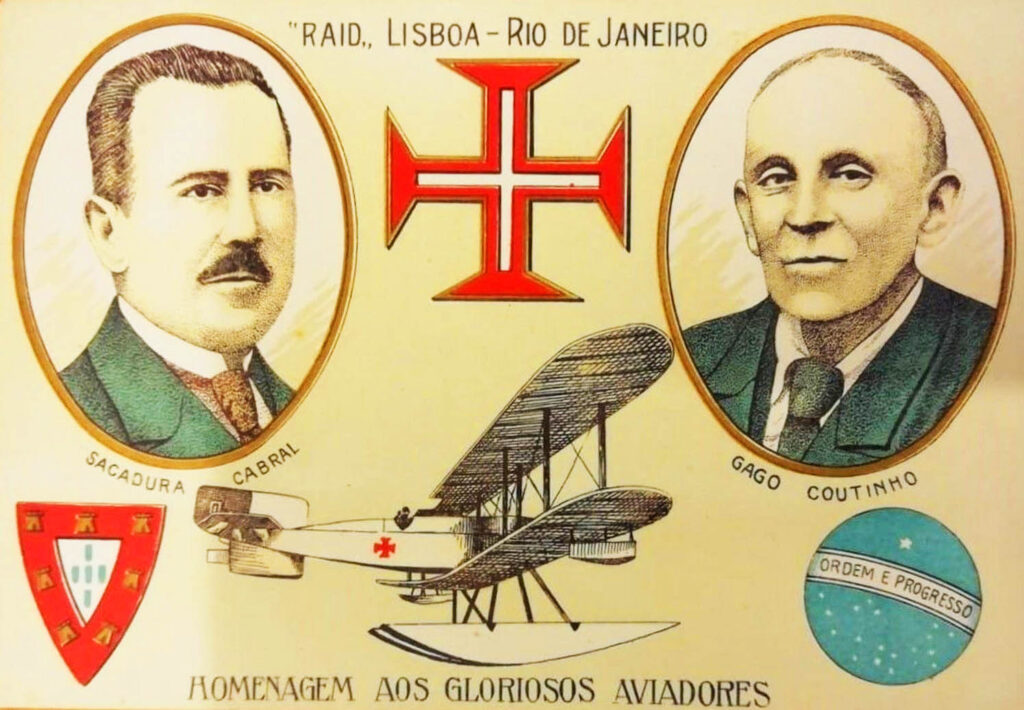
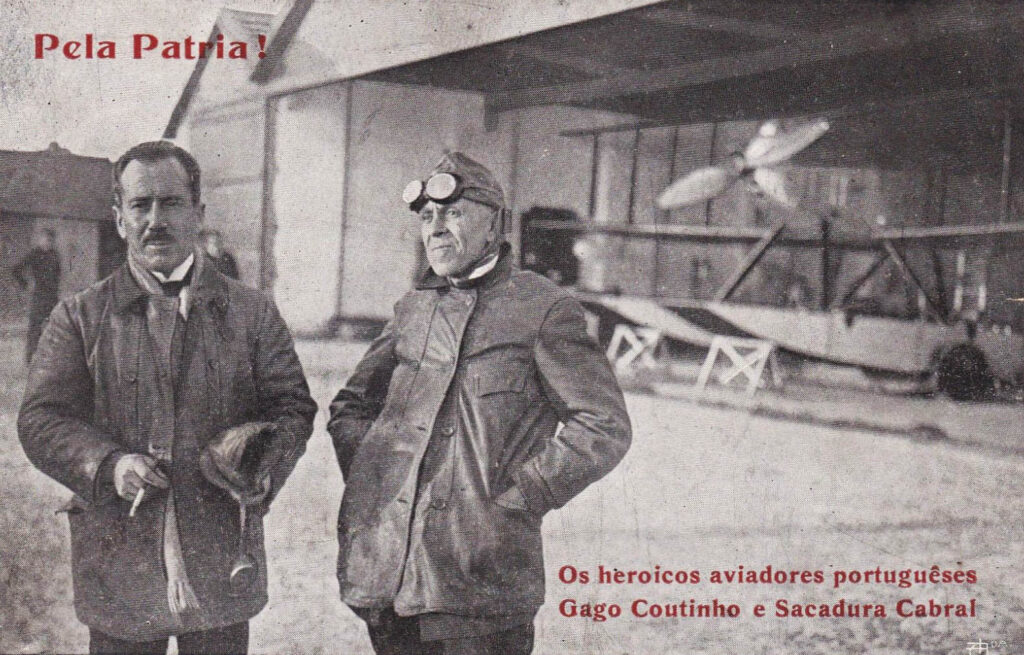
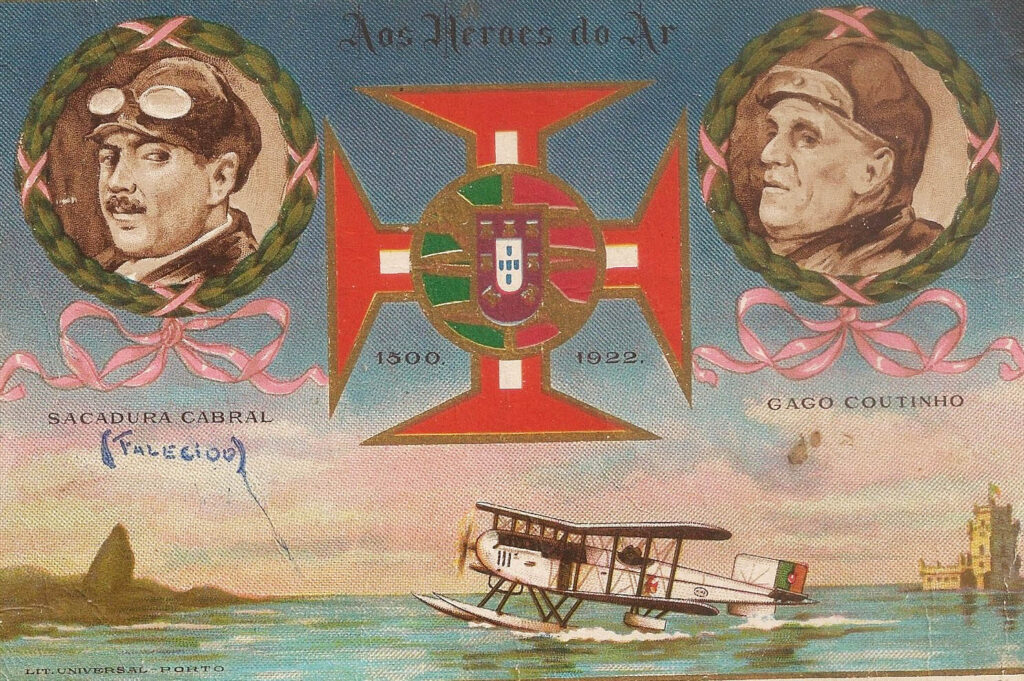
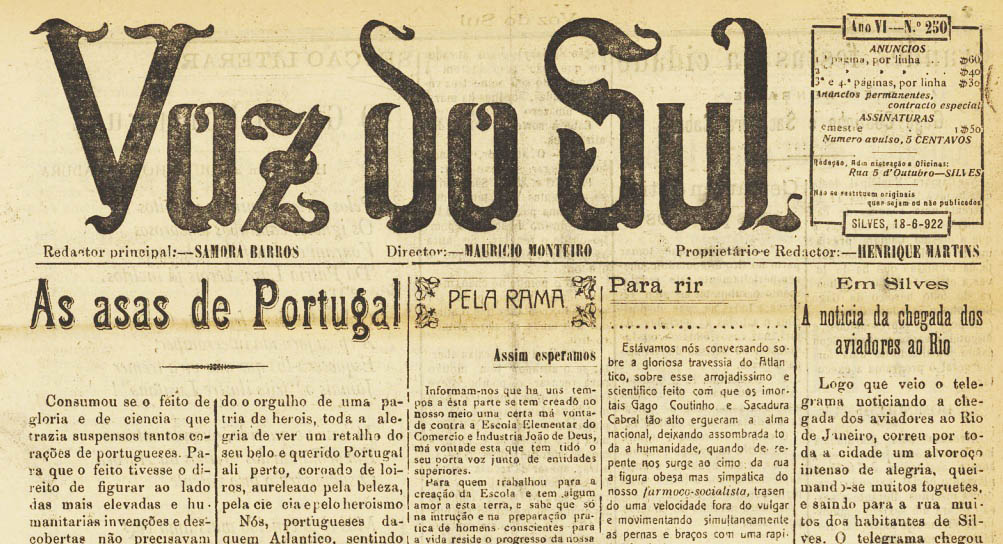
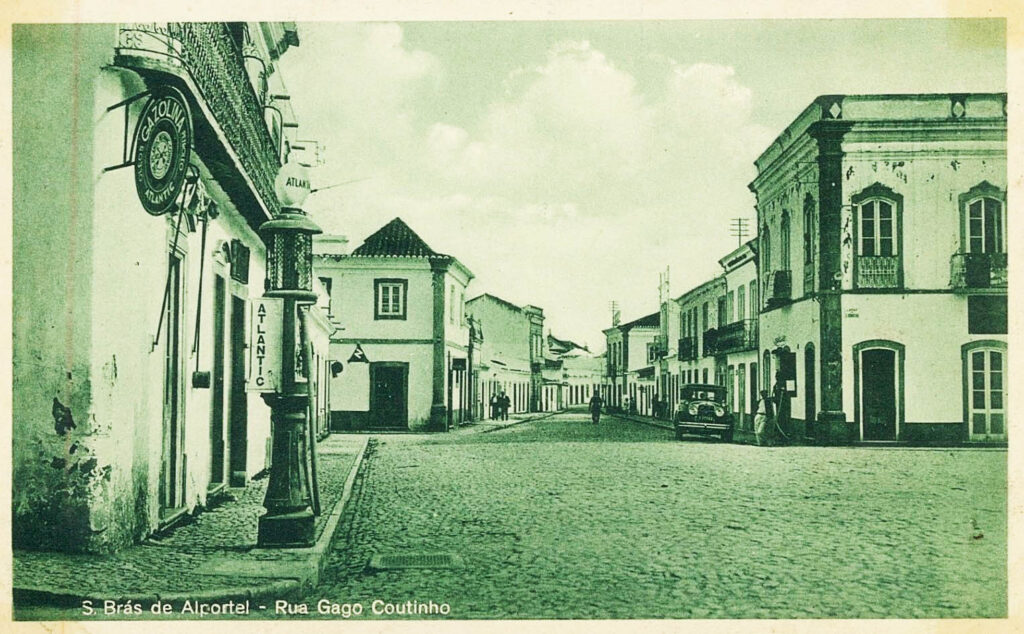
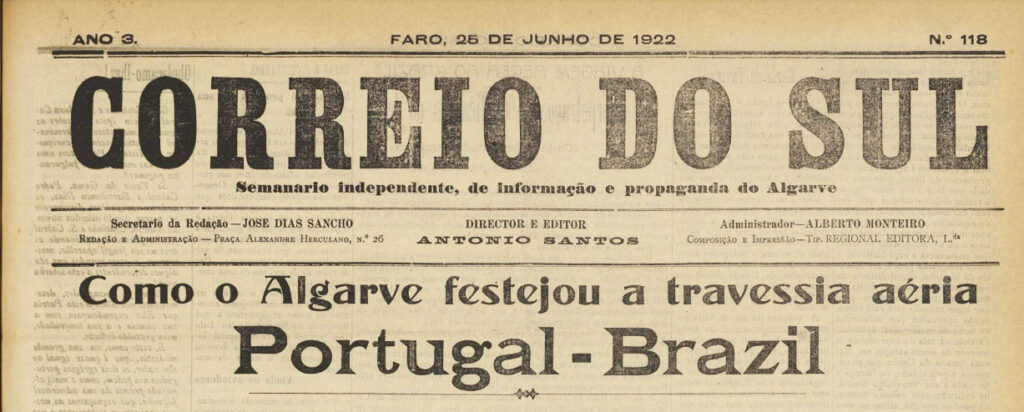
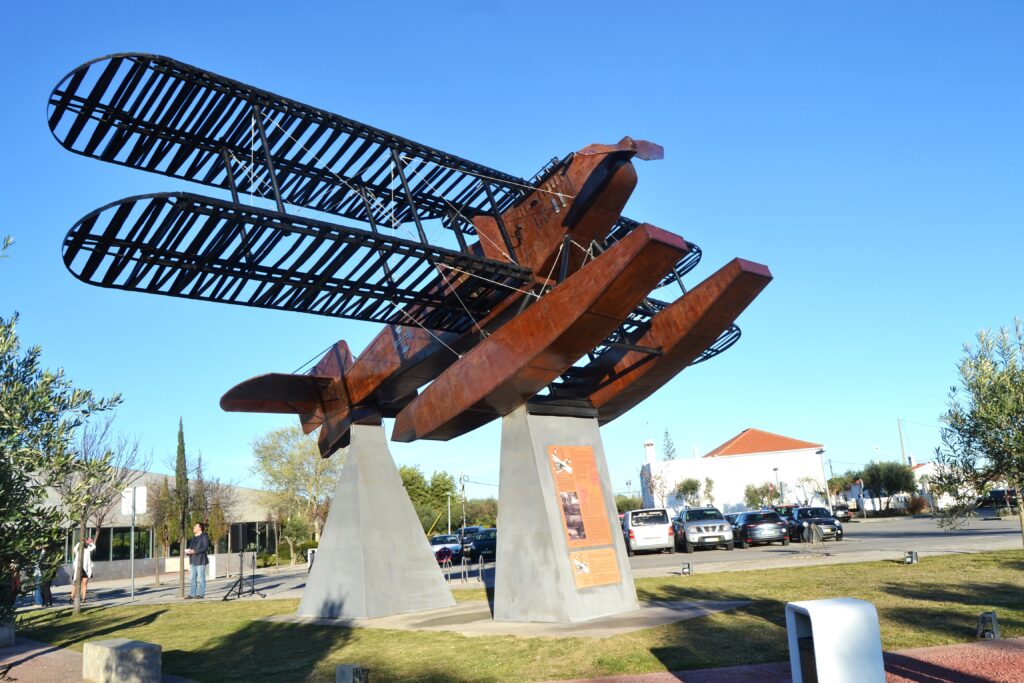
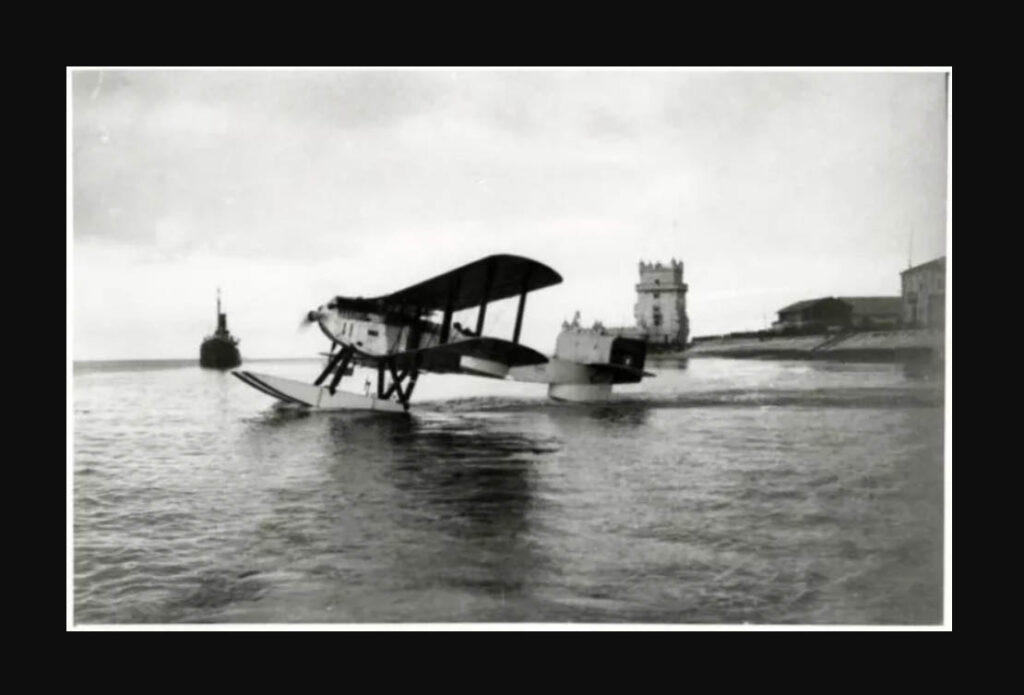



















Comments